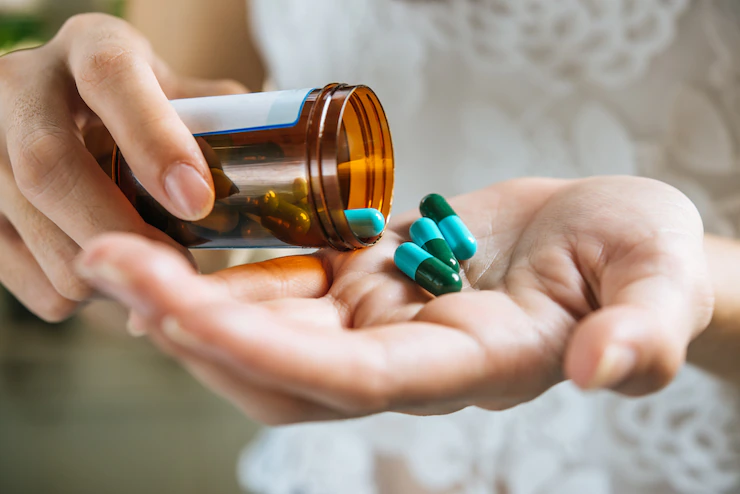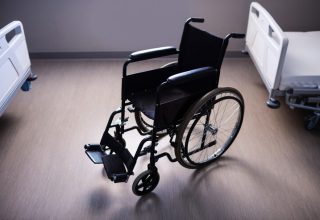How Taking Care Of Your Health Can Prevent Addiction
Once you’ve gotten into the habit of living a healthy lifestyle, you must develop a list of things that help you stay healthy.
It’s also a good idea to develop a list of the items that, in your experience, cause bad moods and exacerbate withdrawal symptoms.
Making a list of healthy habits and triggers to avoid can help you live the healthiest life possible and avoid some avoidable health issues.
Many rehab and detox centers recommend solutions to prevent addiction. If you are a patient at this Austin mental health center, you will know all about these ideas and have the upper hand in preventing addiction before it traps you in the loop.
Why Do You Feel The Urge To Do Drugs?

Your brain is hardwired to seek out and repeat pleasurable experiences. That’s why you want to do things again and over again.
Drugs like heroin and cocaine can trigger your brain’s reward system, rendering you vulnerable to drug misuse. Dopamine, a neurotransmitter, will flood your brain, causing you to experience great pleasure or euphoria.
As a result, if you keep chasing that high, your brain will become accustomed to the extra dopamine, and you’ll need a higher dose to achieve the same effect.
This will eventually change the structure of your brain and its chemical processes, affecting cognitive functions such as decision-making, paranoia, hallucinations, aggressiveness, self-control issues, impulsiveness, etc.
How Can You Prevent Addiction?

Once you learn to take good care of your health, you can prevent addiction. It is especially important when you are in the recovery phase because your body is fragile at that time, and your chances of relapse are pretty high.
So, there are a few healthy habits that you can incorporate into your daily routine to prevent addiction, such as:
1: Practice Healthy Eating
Drug misuse should not be taken lightly. Naturally, the effects differ depending on the medications taken; some can have long-term health problems.
Furthermore, because each person’s brain and body are unique, they will react differently to particular substances.
The brain isn’t the only organ that’s been harmed.
Alcoholism is associated with liver damage and nutrient deficits. Alcohol can impair the development of the baby’s brain in pregnant mothers, resulting in various diseases.
The importance of nutrition in the rehabilitation process cannot be overstated. If you want to keep your health during your recovery, focusing on a diet is a fantastic place to start. Substance addiction slows your metabolism and reduces the function of your organs.
Excessive drinking can hamper the gastrointestinal systems, resulting in vomiting and diarrhea. Stimulants, such as cocaine produce dehydration and a decrease in appetite. If not addressed immediately, this will result in an electrolyte imbalance in the body.
As a result, increasing one’s nutrition is critical. It can not only help you recover from addiction faster.
2: Stay Physically Active
Exercise is an essential component of addiction treatment. It is beneficial to both the mind and the body. Apart from strengthening your muscles and bones, one of the most prominent benefits of exercise is that it aids with stress management.
One of the problems that people recovering from addiction face is stress. To cope with their stress, they turn to drugs, which leads to a relapse.
Physical activity, rather than medicines, can assist control cortisol levels in the blood by generating endorphins.
Another reason to exercise is that it helps to improve sleep quality. Unfortunately, many people fall into the trap of substance addiction because they feel it will help them relax, but this is not the case.
Bodybuilding can also help people feel better, have more energy, and enhance their immune systems.
If you undertake 150 minutes of exercise each week, it will be sufficient to preserve one’s health. Walking for at least 30 minutes outside each day, doing a cardio workout at home, doing yoga, and participating in any sport you enjoy are examples of these activities.
3: Get Enough Sleep
Sleep is vital for your addiction recovery and can affect your mood as well as your physique. Sleep deprivation can make day-to-day functioning and recovery more difficult.
The probability of developing major depression in recovery was substantially higher in people with insomnia. Now, depression can also provoke a person to relapse, which is not desired in recovery.
A strong link exists between obtaining adequate sleep and lowering your chances of sadness, anxiety, and other mental problems.
Stress causes over two-thirds of Americans to lose sleep.
This is particularly bad because sleep helps to alleviate some of the effects of stress, and poor sleep has been related to several serious issues, including depression, anxiety, heart disease, memory problems, weak immunity system, weight gain, etc.
All of these health issues can cause a person to seek refuge in addiction. Therefore, if you get enough sleep when you are in recovery, it will help you prevent addiction.
FAQs
1: What Are Some Ways To Prevent Addiction?
Ans: Once you understand which factors drove you to addiction in the first place, you can control them and prevent addiction. You should also learn to avoid peer pressure and temptation, and if you have a mental disorder, get checked for that immediately. Moreover, keeping a well-balanced life can also help you steer clear of addiction.
2: How Do You Protect Yourself From Addiction?
Ans: The first and foremost way to protect yourself from addiction is to avoid stress. You can let your creative juices flow and stay involved in activities that keep you happy. You can also create a jam-packed schedule that leaves no time for you to get bored, and thus you will stay protected from addiction.
3: What Are The Preventive Factors To Reduce The Risk Of Addiction?
Ans: Strong family bongs and support, parental monitoring of children’s lives, and clear rules of conduct enforced in the family could reduce the risk of addiction. If these strategies are followed from the start, your addictive habits will never emerge in the first place.
Take Care!
Recovery can be hampered if one’s overall health is poor. Finding strategies to look after your health will help you feel better and recover faster.
Schedule regular checkups and see your doctor if you’re not feeling well. Unfortunately, it can be difficult to know whether you’re not feeling well because of a medication side effect, a symptom of mental health disease, or a distinct health issue.
Your doctor can assist you in resolving the issue.
Read Also:
- Beat Addiction at A Texas Rehab Center
- Benefits of Online Addiction Counseling
- How to Explain Your Addiction to Your Loved Ones
- Hypertension: Treatment, Causes, And Symptoms



